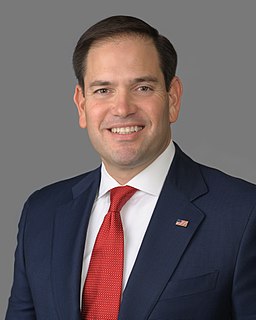A Quote by Robert M. Gates
It has become clear that America's civilian institutions of diplomacy and development have been chronically undermanned and underfunded for far too long - relative to what we spend on the military, and more important, relative to the responsibilities and challenges our nation has around the world.
Related Quotes
"Peace" is a condition in which no civilian pays any attention to military casualties which do not achieve page-one, lead-story prominence-unless that civilian is a close relative of one of the casualties. But, if there ever was a time in history when "peace" meant that there was no fighting going on, I have been unable to find out about it.
The history of man so far is nothing to brag about, from the standpoint of our ideas - and what I mean is, that in comparison with most other societies, our present-day American society has achieved things which are remarkable: material wealth, greater than for any other nation; a relative freedom from oppression; a relative mobility; a spreading of art, of music, of thought, which is also rather unique.
What we are going to do is continue to grow our content spend on original programming, both in absolute numbers and as a percentage of our total spending, because it's been working. It's been helping grow the brand; and more importantly, it's been driving viewing hours relative to how else we would spend the money.
Let me be clear: I'm a believer in a robust military, which is essential for backing up diplomacy. But the implication is that we need a balanced tool chest of diplomatic and military tools alike. Instead, we have a billionaire military and a pauper diplomacy. The U.S. military now has more people in its marching bands than the State Department has in its foreign service - and that's preposterous.
When you put relative and absolute truth together and they become one unit, it becomes possible to make things workable. You are not too much on the side of absolute truth, or you would become too theoretical. You are not too much on the side of relative truth, or you would become too precise. When you put them together, you realize that there is no problem.
In addition to the problem of public confidence, hiring a relative also causes problems within the government organization. It can undermine the morale of government officials. It can cause confusion about what the lines of authority are; in other words, the relative may have a particular title, but many may perceive the relative's role as even more important than the title would suggest. It may be very difficult to say no to the president's son-in-law.
Since my election to Congress, I've always been interested in human rights. I really do believe that's America's strength. Yes, we have a strong military; yes, we have a strong economy. But what really makes America the unique nation it is, is that we speak up about human rights, and anti-corruption, and good governance, and democratic institutions. That's what America is known for. That's what inspires people around the world with U.S. leadership.
The U.S. might enjoy overwhelming military advantage, but its relative economic power, which in the long run is almost invariably decisive, is in decline. The interregnum after the Cold War, far from being the prelude to a new American age, was bearing the signs of what is now very visible: the emergence of a multipolar world.
By calling attention to 'a well regulated militia,' 'the security of the nation,' and the right of each citizen 'to keep and bear arms,' our founding fathers recognized the essentially civilian nature of our economy... The Second Amendment still remains an important declaration of our basic civilian-military relationships in which every citizen must be ready to participate in the defense of his country. For that reason I believe the Second Amendment will always be important.
When we think of globalization we are thinking in part of structures and institutions that have been developed over time and that have allowed us to become more interdependent and interrelated. But the development, the extraordinary development, of those structures and institutions has not fundamentally transformed our humanity. We are still those animals with fears and anxieties and insecurities in the face of death and dread and disappointment and disease.

































